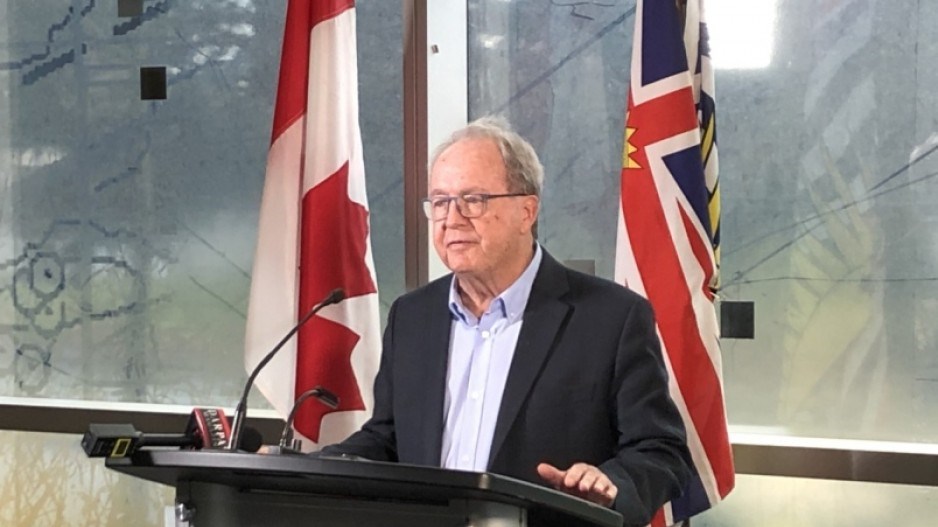B.C.’s Ombudsperson has sent a scathing, 11th-hour letter to Surrey city council, urging it to not adopt controversial code of conduct amendments tonight.
Jay Chalke said the April 11-passed bylaw amendments that stop ethics commissioner Reece Harding from investigating new complaints until after the Oct. 15 election day undermine the purpose of the code of conduct and may have breached the Community Charter’s closed meetings laws.
“Surrey demonstrated commendable leadership by being the first municipality in British Columbia to appoint an ethics commissioner. However, council's recent decision to so broadly restrict complaints in an election year subverts [the Surrey ethics commissioner’s office] purpose and has weakened the credibility of the overall effort,” wrote Jay Chalke. “The principles of transparency, accountability, and integrity should always be promoted, not just in non-election years.”
Harding recommended last year that council enact a 90-day moratorium on new investigations and not allow processing of new complaints between the opening of nominations and election day. Chalke called those recommendations a good faith effort to balance accountability with election integrity, and in line with the policies of other big cities.
However, Mayor Doug McCallum’s Safe Surrey Coalition, which holds the majority on council, decided by a 5-3 vote at the April 11 meeting to begin the moratorium the next day.
Chalke wrote that he was concerned that council considered which recommendations be excluded or modified during a closed-door meeting on March 28.
“The authority by which council considered these recommendations in a closed meeting is not readily apparent, and if that occurred, fails to promote transparency and accountability on the part of council. I have not, at this time, investigated this matter under the Ombudsperson Act,” Chalke said. “I am writing simply to express my concern based on public reports.”
Ultimately, Chalke wrote, the failure to give any notice of the immediate, blanket moratorium that began April 12 impacted every citizen who may have been planning to bring an ethics complaint forward.
“Furthermore, the scope, duration and timing of the modified moratorium leaves council open to the criticism that the purpose of the restriction is to preclude a report that could be investigated by SECO before voting day rather than being targeted at the lodging of complaints so close to the election that they could not reasonably be expected to be investigated before voting day.”
Coun. Brenda Locke of Surrey Connect, who is running against McCallum in this fall’s election, said she was surprised but very glad to receive Chalke’s letter.
“Every citizen of Surrey should be very concerned about this, what are they trying to hide?” Locke said. “Why would we stop intaking ethical conduct complaints six months prior to an election?”
Locke said she hopes that Surrey citizens tell McCallum that “this is not his playground, he can’t do whatever he wants.”
McCallum is the subject of an ethics complaint due to his continued role as Surrey Police Board chair while he awaits trial on Oct. 31, two weeks after the election, on public mischief charges. He allegedly lied to a police officer after complaining about a dispute in a parking lot last September with a petitioner in favour of a referendum on switching from the RCMP to a municipal force.



